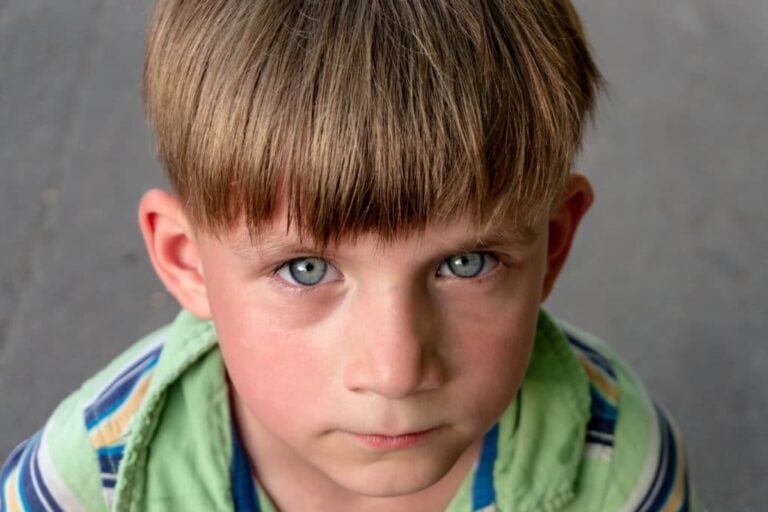Is your child’s difficult behavior on purpose?
“She knows it’s not ok to scream at me and say hurtful things.”
“All of a sudden he goes into a rage and starts hitting and throwing things.”
“We’ve tried everything and he should know better by now.”
Why doesn’t he?
It can certainly seem like your child is intentionally being defiant and disrespectful. Some might call this behavior “oppositional”. This is a big mistaken belief that many parents have about their children.
Consider this…
A child who is flying off the handle and screaming at you is emotionally stressed and so overwhelmed that she can’t manage her feelings and express them in a more mature way. It seems intentional, but most likely it’s a stress response.
Behavior is communication. Children do not always have the language or the understanding to tell us what they need, so they communicate their needs through their behavior.
When your child is in the midst of an extreme meltdown, he’s communicating that something is not right. He’s dealing with some very big feelings and he needs your help. In this state of emotional overload, he’s stressed and unable to stop the raging or crying.
Here’s a simplified explanation of what happens in the brain during stress.
You’ve probably heard of the fight or flight stress response. This is an automatic and immediate response that happens when an area of our brain called the amygdala perceives a threat. It doesn’t matter whether the threat is real or imagined, conscious or not. Our brain responds with hormones that send our body/mind into fight, flight or freeze. Chemical reactions suppress brain activity such as rational thought, short-term memory, and the ability to think about consequences. We may immediately act out emotionally or physically instead of thinking through our actions.
In other words, if your child is reacting to a perceived threat (whether real or imagined, conscious or not) and is in an intense emotional state, he can’t think straight, he can’t use his words and you can’t reason with him. He doesn’t remember what you said two minutes ago. If you try to get him to stop yelling or crying, you’re only going to make it worse.
Later in this series I’ll give you specific steps to take during these situations, so you know what to do. But these meltdowns are symptoms of deeper causes. It’s important to first understand what’s going on within your child’s nervous system.
Let’s take a look at how the brain develops.
The more primitive aspects of the brain develop first. The amygdala is already developed at birth. Throughout childhood (and beyond) the primitive emotional brain frequently activates and affects the part of the brain that manages higher thinking – executive function.
The prefrontal cortex is the part of the brain that manages executive function. This includes rational thinking, impulse control, problem-solving, attention, following directions, staying on track and managing emotions. This part of the brain is in continual development.
All children are on an ongoing path to develop more sophisticated executive functioning. Recent brain science tells us that development begins in infancy and may take 25-30 years to fully develop.
I’ll repeat that – your child’s reasoning brain may not be fully developed until age 30!
And even if your child is developing normally, stress will cause kids to regress to lower developmental states. If you’ve ever seen your teen-ager melt down into four-year-old behavior, you know what I mean. You might have wondered, wow what just happened? Something very important to her was threatened and the stress caused her “upstairs brain” to shut down.
Stress, of course, affects adults too.
It’s natural for you to be stressed when your child goes off the rails, especially if he’s screaming mean things at you. Your child needs your help, but he’s not telling you this. Instead he’s being disrespectful and might even be throwing things or hitting you. And this makes it very hard for you to want to help him.
Here’s the rub: The stress response happens in everyone, including adults. And I might say, especially parents! So when your child’s meltdown triggers your upstairs brain to go offline, neither of you have access to rational thinking in that moment.
This is called being emotionally dysregulated. Both parents and kids can frequently get into this state, even several times a day, depending on how stressful your life is.
Read this post for a deeper exploration of why kids get stressed and dysregulated.
Learn What to Do to Resolve Your Child’s Troubling Behavior
Understand the cause of the behavior
Know what to do for yourself in those really stressful parenting moments
Know what to do for your child to bring them back to calm and cooperation
Enter your email to watch the video and receive emails with strategies that work.





